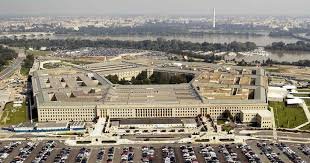In a dramatic turn of events on the global stage, U.S. President Donald J. Trump has categorically rejected a leaked Pentagon intelligence report suggesting that the recent American military strikes on Iran failed to destroy the country’s nuclear facilities. Instead, Trump doubled down on his earlier assertion, maintaining that Iran’s key nuclear sites were “completely destroyed” and that the mission was an “absolute success.”
The controversy stems from an internal assessment by the Pentagon’s Defense Intelligence Agency (DIA), which has reportedly concluded that the strikes only set Iran’s nuclear programme back by “a few months” at best. The classified assessment, leaked to select media outlets, directly contradicts the president’s televised statement from last week in which he had claimed that the Fordow, Natanz, and Isfahan nuclear facilities had been “obliterated.”
The leak, while yet to be officially confirmed, has reignited debates in Washington and across NATO capitals regarding the transparency, legality, and effectiveness of Trump’s military decision-making, especially at a time when tensions in the Middle East remain volatile. The president’s firm rejection of the intelligence report comes as he joins NATO leaders at an emergency summit in The Hague — a gathering now overshadowed by this strategic controversy.
Despite the high drama in diplomatic and intelligence circles, the ceasefire between Israel and Iran appears to be holding for the moment. Officials from both sides, though cautious in their language, have confirmed that hostilities have paused since the strikes were executed. This fragile calm, however, is under continuous international scrutiny as analysts warn that any misstep could reignite a broader regional conflict.
BBC Chief International Correspondent Lyse Doucet, reporting from inside Iran, has noted that while military operations may have paused, the psychological and social impact on ordinary Iranians has been profound. “Lives as they knew them have changed,” she reports, highlighting a sense of pervasive uncertainty across Iranian cities. The public’s sentiment oscillates between defiance and fear, as the nation comes to grips with what may be a new long-term geopolitical reality.
Back home, President Trump faces mounting pressure. Critics argue that his insistence on “total destruction” of Iranian nuclear infrastructure is more about political posturing than strategic accuracy. Several Democratic lawmakers have demanded a congressional inquiry into the nature and extent of the military action, citing concerns about executive overreach, possible violations of international law, and lack of consultation with NATO allies.
Meanwhile, Trump remains unfazed. At a press briefing before departing for the NATO summit, he stated, “Our mission was clear, our goal was precise, and our success was total. Iran’s ability to enrich uranium has been annihilated.”
Intelligence officials, however, continue to quietly raise red flags. Sources inside the Pentagon suggest that while some above-ground structures were damaged, the deep underground bunkers housing Iran’s most sensitive enrichment operations likely remain intact — a fact that would render the operation more symbolic than substantive.
The wider international community is responding with cautious concern. While some Western allies, particularly the UK and France, have offered tempered support for Washington’s decision to act, others — including Germany and Turkey — have urged restraint, calling for renewed diplomatic engagement with Tehran rather than escalation.
Russia and China, meanwhile, have condemned the strikes outright, accusing the United States of destabilizing an already fragile region. Iran, for its part, continues to project resilience. Senior Iranian officials claim that while the attacks caused “some damage,” they failed to break Iran’s scientific backbone or its strategic resolve.
As the geopolitical theatre shifts to Europe, where Trump is expected to engage NATO leaders in discussions about Iran, defense coordination, and broader Middle East strategy, one question looms large: Who controls the narrative?
Trump’s denial of the intelligence report highlights the growing tension between the White House and the U.S. intelligence community. If the Pentagon’s assessment is accurate, the military operation may have achieved little more than a temporary delay in Iran’s nuclear progress — all at the cost of escalating global instability.
What remains clear is this: the episode marks a critical juncture in U.S. foreign policy under Trump’s leadership. Whether the strikes were a decisive show of strength or an ill-fated gamble remains to be seen. But with the region on edge and global alliances being tested, the consequences of this action will echo far beyond the confines of any intelligence leak or presidential press briefing.
















